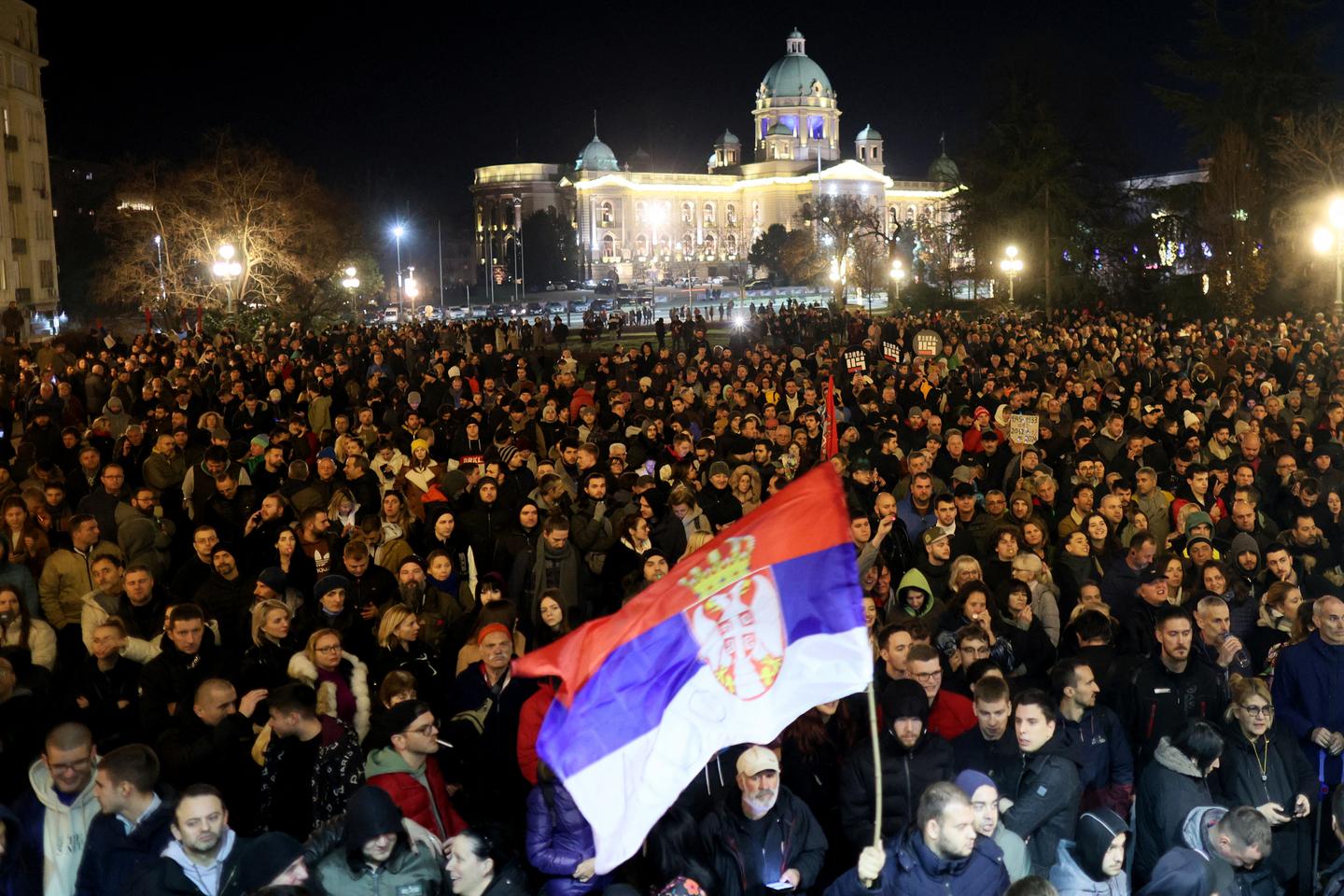


Far from the battlefields of Ukraine, another front of Russia's war is unfolding in the Balkans, where Moscow has been attempting to exploit nationalist tensions against the aspirations of the region's countries to join the European Union (EU). Russia's diplomatic spokeswoman, Maria Zakharova, recently compared the protests in Serbia denouncing alleged fraud in the December 17 election to those in Kyiv's Maidan Square in 2014 – which led to pro-Western leaders coming to power in Ukraine.
Since the results of these early parliamentary elections were announced, every day hundreds of demonstrators have braved the security forces to protest against the electoral irregularities observed. While the official results indicate a 46.72% victory for President Aleksandar Vucic's nationalist Serbian Progressive Party, only 23.58% went to the pro-European coalition Serbia Against Violence, seven of whose leaders are on hunger strike.
Observers from the Organization for Security and Co-operation in Europe (OSCE), the European Parliament and the Council of Europe have denounced serious irregularities, including "vote buying" and "ballot box stuffing." The Serbian president, however, has insisted that the elections "were the most honest [...] in Serbia's recent history" and has accused "powerful foreign states" of seeking to "destabilize the country."
Commando operation in Kosovo
This poisonous context reflects Vucic's strategy of tension, confirming growing doubts about Serbia's European orientation. Having been in power for almost 10 years, the president has shown his admiration for former dictator Slobodan Milosevic, who died before the end of his trial for crimes against humanity and genocide.
Vucic has not abandoned his ambition to regain control of Kosovo – whose independence he has never accepted since it was declared 2008 – as the aborted Serbian commando operation in September there would seem to indicate. Finally, although he is the president of a country that is a candidate for membership of the EU (from which he has received funds), he has refused to align himself with European sanctions against Russia and has stopped implementing the reforms required by the Union.
Europeans had long believed that Serbia's trade ties to the EU, as well as the country's economic development, would eventually prevail over Vucic's nationalist rhetoric. They now have every reason to view his double game with circumspection. France, in particular, is very attached to the ambition of anchoring the Balkans – and therefore Serbia – to the union. This dilemma is anything but straightforward, for the further away Serbia's entry into the EU seems to have drifted, the more Russia and China have taken advantage of the situation to advance their interests.
Yet the example set by Viktor Orban's Hungary, which has intended to act as Russia's Trojan horse within the EU, should prompt member-states to demand drastic and irreversible compliance with the rule of law, to prevent Belgrade from one day repeating the same tactic. Europeans know from their own history that the risks of a crisis in the Balkans can have disastrous consequences, far beyond the region itself. Against the backdrop of tension exacerbated by Russia's aggression in Ukraine, they need to be vigilant about the Serbian president's excesses.
